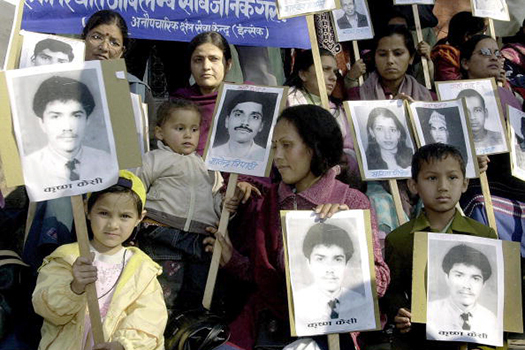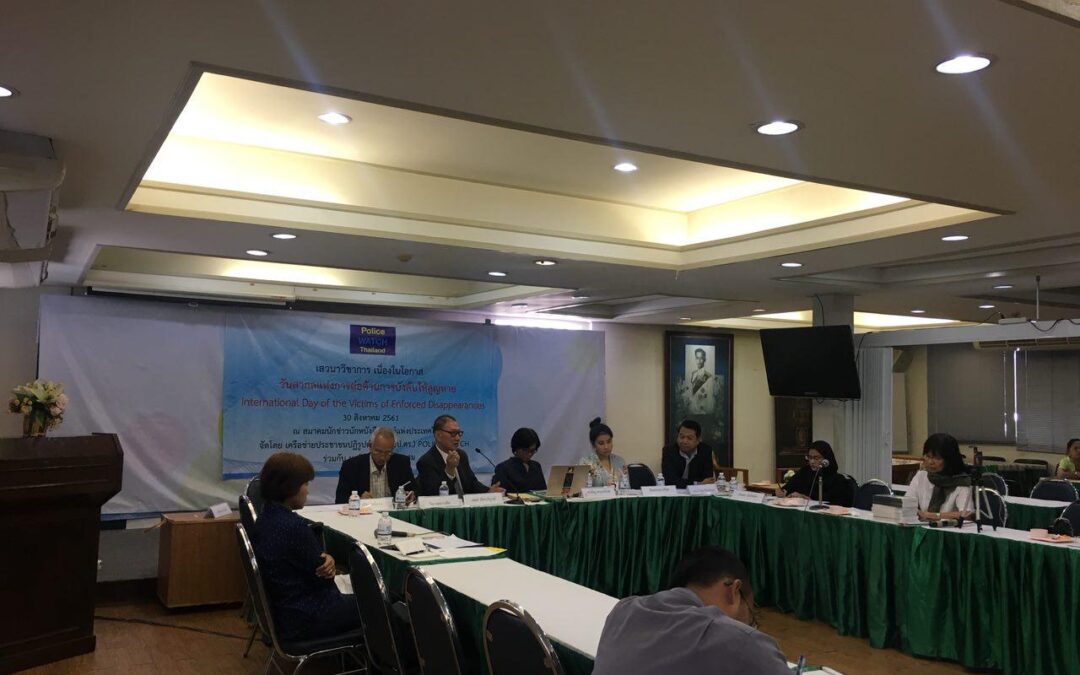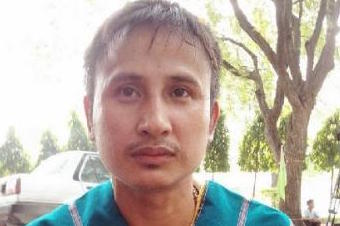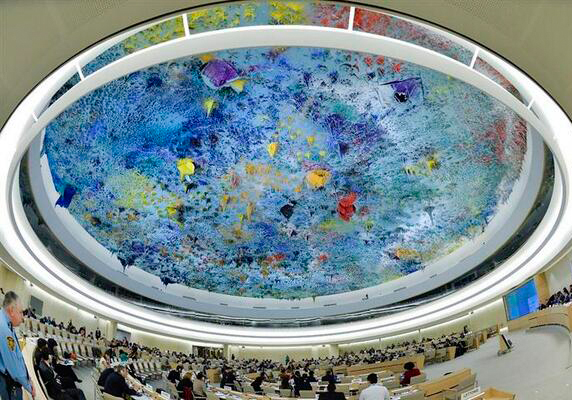
Aug 30, 2019 | News
On the occasion of the International Day of the Victims of Enforced Disappearances, Advocacy Forum-Nepal, the Terai Human Rights Defenders Alliance (THRD), and the ICJ voiced their concern about the Government’s failure to provide justice for the victims of the country’s decade-long armed conflict, including victims of enforced disappearance.
The organizations also remembered the victims of enforced disappearances in Nepal and recognized the unceasing efforts of victims and their families and others advocating and campaigning for truth and justice for serious human rights violations in Nepal for over a decade.
Nepal faced a protracted internal armed conflict from 1996 to 2006. In the decade-long conflict, serious human rights violations and abuses were committed by both sides: the Government, including the Royal Nepal Army; and the Communist Party of Nepal (Maoist). Approximately 1,300 people were “disappeared” during the conflict. The fate of many of “disappeared” is yet to be known.
The Comprehensive Peace Agreement (CPA) put an end to the conflict on 21 November 2006, with both sides agreeing to hold perpetrators of human rights violations and abuses accountable and provide access to effective remedies and reparation to victims, including a commitment to publicize the fate or whereabouts of “disappeared”. However, nearly 13 years after the signing of the Comprehensive Peace Agreement in November 2006, these promises remain unfulfilled.
The Truth and Reconciliation Commission and Commission on Investigation of Disappeared Persons, both established in February 2015, have failed to resolve the many thousands of complaints brought to them by victims and their families, and have yet to publicize their findings. Furthermore, in 2015, the Supreme Court ruled the 2014 Act creating the legal framework for the Commissions to be unconstitutional, due in part to the inclusion of provisions that could be used to grant amnesty to perpetrators. In February 2019, the tenure of the commissions was extended to 2020, but the terms of the commissioners expired on 13 April 2019. As of August 2019, no formal replacements had been announced, though a committee to recommend appointments has been established. The ICJ and other organizations have called for a suspension of the current appointment process until amendments to the legal framework are made, and a more consultative and transparent process is initiated.
Nepal has also enacted a new Penal Code, with effect from August 2018. For the first time, the Penal Code recognized enforced disappearance as a distinct crime. While the intent behind this measure is commendable, the law does not meet Nepal’s obligations concerning crimes under international law. In particular, the definition of enforced disappearance falls short of international standards; the crime of enforced disappearance is not absolutely prohibited; provisions related to superior and command responsibility are inadequate; and the penalties for enforced disappearance are inconsistent with international standards. The provisions will apply retroactively to the more than 1,300 conflict era cases.
The organizations urged the Government of Nepal to:
- Amend the 2014 Transitional Justice Act to ensure it is consistent with international human rights standards and Supreme Court rulings, including removing amnesty for perpetrators;
- Revise the criminal code to bring it in line with international standards. At the minimum, this should include:
- amending the definition of enforced disappearances to bring it in line with Nepal’s international obligations and the Convention on the Protection of All Persons from Enforced Disappearance (CED)
- revising the penalty provisions in the Criminal Code Bill to comply with relevant provisions of the CED and other international law and standards
- removing the statute of limitations for enforced disappearance cases
- Ratify International Convention for the Protection of All Persons from Enforced Disappearances;
- Publicize the findings of the CIEDP; and
- Ensure that in Nepal’s legal system, the victims of enforced disappearance, including family members of “disappeared” persons, have the right to obtain reparation and prompt, fair and adequate compensation; and they can effectively exercise that right in practice.
Contact:
For the ICJ: Frederick Rawski, ICJ Asia-Pacific Director, t: +66 64 478 1121; e: frederick.rawski(a)icj.org
Background:
The International Day of the Victims of Enforced Disappearances falls on 30 August every year. Nepal is bound by international legal obligations under the International Covenant on Civil and Political Rights (ICCPR) and Convention against Torture and Other Cruel, Inhuman or Degrading Treatment or Punishment (CAT) – both of which it has acceded to – to investigate, prosecute, punish and provide remedies and reparation for the crimes of torture, other acts of ill-treatment, and enforced disappearance.
Nepal-International Day Enforced Disappearances-Press releases-2019-NEP (Story in Nepali)

Aug 30, 2018 | News
The ICJ participated in a panel discussion to commemorate International Day of the Victims of Enforced Disappearances, organized by Police Watch Thailand and Cross Cultural Foundation.
The discussion was held at the premises of the Thai Journalists’ Association.
The event began with opening remarks by Surapong Kongchantuk, Chairperson of the Cross Cultural Foundation, who called on the Thai Government to ratify the International Convention for the Protection of All Persons from Enforced Disappearance (ICPPED) and for the existing Draft Prevention and Suppression of Torture and Enforced Disappearance Act (‘Draft Act’) to come into force without undue delay.
He also emphasized that perpetrators of the crime of enforced disappearance needed to be brought to justice, and victims and relatives of victims of enforced disappearance must be provided with effective remedies and reparation.
A panel discussion followed the opening remarks, moderated by Pornpen Khongkachonkiet, Director of Cross Cultural Foundation. Panelists included Sanhawan Srisod, ICJ’s National Legal Adviser, Veera Somkomkid, from People Anti-Corruption Network, Pol.Col. Wirut Sirisawadibuth, Columnist and police reform activist, and Adul Kiewboribon, Chair of a committee of persons whose relatives disappeared during May 1992 protests against the government of General Suchinda Kraprayoon.
In her remarks, Sanhawan Srisod expressed concern at the absence of domestic legislation making torture and enforced disappearance specific crimes in Thai law and gaps in the existing Draft Act.
She also called for prompt, independent, impartial and effective investigations into the fate and whereabouts of disappeared persons consistent with international law and standards.
Human Rights Commissioner, and wife of disappeared lawyer and human rights defender Somchai Neelapaijit, Angkhana Neelapaijit, made closing remarks for the event.
The panel discussion followed a forum the ICJ co-hosted in March this year, commemorating the 14th year anniversary of the enforced disappearance of Somchai Neelapaijit, which also raised awareness about amendments to the Draft Act.
During the forum, the ICJ raised concerns about the independence of the ‘Committee managing complaints of torture and enforced disappearance cases’, which was established in May 2017, and expressed the need for further clarification on the legal framework – domestic and/or international – that will ground the Committee’s operation.
Background
The International Day of the Victims of Enforced Disappearances falls on 30 August every year.
Thailand is bound by international legal obligations under the International Covenant on Civil and Political Rights (ICCPR) and Convention against Torture and Other Cruel, Inhuman or Degrading Treatment or Punishment (CAT) – both of which it has acceded to – to investigate, prosecute, punish and provide remedies and reparation for the crimes of torture, other acts of ill-treatment, and enforced disappearance.
However, Thailand has not enacted domestic legislation recognizing enforced disappearance as a criminal offence. Thailand is also yet to ratify the ICPPED, despite signing the Convention in January 2012.
Thailand’s Ministry of Justice concluded a second round of public consultation on the Draft Act and is now reportedly in the process of evaluating the results of the consultation.
On 30 August 2017, 23 November 2017 and 12 March 2018, civil society organizations, including the ICJ, Amnesty International and Human Rights Watch, sent open letters to the Government, including to Thailand’s Minister of Justice, outlining amendments that would be necessary to bring the Draft Act in line with Thailand’s international human rights obligations.
In the absence of domestic legislation criminalizing torture and enforced disappearance, on 23 May 2017, a ‘Committee managing complaints for torture and enforced disappearance cases’ was established by the Prime Minister, pursuant to Prime Minister’s Office Order No. 131/2560 (2017).
The Committee, chaired by the Minister of Justice, consists of 15 officials drawn from different ministries,including the Ministry of Defence, the Royal Thai Police and the Internal Security Operations Command (ISOC).

Apr 16, 2015 | News
Thailand must strengthen its efforts to solve the apparent enforced disappearance of Karen human rights defender, Pholachi “Billy” Rakchongcharoen, who “disappeared” one year ago this Friday, said the ICJ.
“Thailand must strengthen its efforts to carry out a thorough and effective investigation into Billy’s fate and whereabouts in a manner that complies with its international obligations,” said Kingsley Abbott, International Legal Adviser at the ICJ.
“As part of this process, it is essential that the authorities evaluate the investigation objectively to ensure it has been carried out independently and impartially, that the necessary resources have been allocated, and that all investigative opportunities have been pursued,” he added.
The ICJ reiterates its call for the Department of Special Investigations (DSI) to assume responsibility for the investigation because of the need for the DSI’s special expertise.
The DSI has the power to assume jurisdiction over special criminal cases including complex cases that require special inquiry, crimes committed by organized criminal groups, and cases where the principal is an influential person.
A six-day habeas corpus inquiry monitored by the ICJ and which concluded on 17 July 2014, and a subsequent appeal delivered on 26 February 2015, were unsuccessful in shedding any light on Billy’s fate or whereabouts.
Thailand, as a Party to the International Covenant on Civil and Political Rights, is required to investigate, prosecute, punish and provide a remedy and reparation for the crime of enforced disappearance.
Background
Billy (photo) was last seen on 17 April 2014 in the custody of Kaeng Krachan National Park officials. The officials claimed they detained Billy for illegal possession of honey but released him later the same day.
Billy had been working with ethnic Karen villagers and activists on legal proceedings the villagers had filed against the National Park, the Wildlife and Plant Conservation Department, the Ministry of Natural Resources and Environment, and the former Chief of Kaeng Krachan National Park concerning the alleged burning of villagers’ homes and property in the National Park in 2010 and 2011.
The Royal Thai Government has signaled its recognition of the gravity of the crime of enforced disappearance, and its commitment to combating it, by signing the International Convention for the Protection of All Persons from Enforced Disappearance on 9 January 2012.
The Convention affirms the absolute right not to be subject to enforced disappearance and places an obligation on states to investigate acts of enforced disappearance and to make it a criminal offence punishable by appropriate penalties that take into account its “extreme seriousness”, and to take the necessary measures to bring those responsible to justice.
Contact:
Kingsley Abbott, ICJ International Legal Adviser, t: +66 (0) 94 470 1345 ; e: kingsley.abbott(a)icj.org
Thailand-Billy one year-News-PressRelease-2015-THA (full text in PDF)

Sep 16, 2014 | Advocacy, Non-legal submissions
ICJ affiliate the Colombian Commission of Jurists today delivered an oral statement at the UN Human Rights Council, concerning enforced disappearances in Thailand.
The statement noted that of the 81 cases transmitted by the Working Group on Enforced or Involuntary Disappearances to the Royal Thai Government between 1980 and 2014, the Government has clarified only two (A/HRC/27/49, 5 August 2014).
The statement highlighted the case of Somchai Neelapaijit, a lawyer and human rights defender, who was subjected to enforced disappearance more than 10 years ago but whose case remains unresolved. I also described the recent disappearance of Pholachi “Billy” Rakchongcharoen, a Karen minority human rights activist, who has not been seen since April 2014, when he was last seen in the custody of certain public officials with whom he and his community were engaged in an ongoing legal dispute.
The statement emphasised that Thailand must effectively investigate all cases and provide victims, including family members, withfull remedies and reparation. Enforced disappearance should be a distinct crime in domestic law, with penalties reflecting its extreme seriousness. Thailand should also accept the 30 June 2011 visit request of the Working Group and ratify the Convention for the Protection of All Persons from Enforced Disappearance, which it signed on 9 January 2012.
Thailand exercised its right of reply to respond to the oral statement.
The statement can be downloaded in PDF format here: Thailand-EnforcedDisappearance-Advocacy-non legal submission-2014-ENG
The statement and reply can be viewed in the UN video archive, here.
A written version of the reply by Thailand (unofficial, the official reply is as delivered in the video above) can be downloaded in PDF format here: Thailand_R of Reply_GD_18

Aug 29, 2013 | News
The Pakistani government should affirm its commitment to end enforced disappearances by ratifying the International Convention for the Protection of All Persons from Enforced Disappearance.
The call by the ICJ and Human Rights Watch comes on the eve of the third annual United Nations International Day of the Victims of Enforced Disappearances (30 August 2013).
“Ratifying the Convention against Disappearances is a key test for Prime Minister Nawaz Sharif’s new government,” said Ali Dayan Hasan, Pakistan director at Human Rights Watch. “The government would send a clear political message that it’s serious about ending ‘disappearances’. And it would show its commitment to ensuring justice for serious human rights violations.”
Pakistan’s participation in the United States-led “war on terror” since 2001 has resulted in hundreds and perhaps thousands of individuals being “disappeared.”
In addition to those arbitrarily detained in counter-terrorism operations, journalists, human rights activists and alleged members of separatist and nationalist groups, particularly in Balochistan province, have been and continue to be forcibly disappeared.
“Pakistan’s failure to hold even a single perpetrator of enforced disappearances to account perpetuates the culture of impunity in Pakistan,” said Sam Zarifi, Asia-Pacific Regional Director of ICJ. “The prevalence of gross violations of human rights in the country today is partly a legacy of this impunity.”
Despite repeated denials by Pakistan’s security agencies, the Supreme Court of Pakistan has acknowledged and human rights groups have documented evidence of the involvement of intelligence and security agencies in enforced disappearances.
In July, Pakistan’s attorney general admitted that more than 500 “disappeared” persons are in security agency custody.
“In Balochistan and beyond, Pakistani security forces have forcibly disappeared, tortured, and unlawfully killed people in the name of counter-terrorism,” Hasan added. “Pakistan has a responsibility to arrest and prosecute militants acting outside the law, but abuses against suspects cannot be explained away as a way to end terrorism.”
“All disappeared persons must be released or, if charged with recognizable crimes, brought without further delay before a court to see if their continuing detention is legal,” Zarifi concluded. “The government should also fully investigate and prosecute those who are responsible for ordering, participating or carrying out enforced disappearances.”
The UN Working Group on Enforced or Involuntary Disappearances in its 2012 report on Pakistan found that the country’s anti-terrorism laws, in particular the Anti-Terrorism Act 1997, and the FATA/PATA Action (in aid of civil powers) Regulations 2011, allowed arbitrary deprivation of liberty, which has enabled enforced disappearances.
Under international law, a state commits an enforced disappearance when its agents take a person into custody and then deny holding the person, or conceal or fail to disclose the person’s whereabouts.
Family members and legal representatives are not informed of the person’s whereabouts, well-being, or legal status.
“Disappeared” people are often at high risk of torture, a risk even greater when they are detained outside of formal detention facilities such as prisons and police stations.
An enforced disappearance removes an individual from the protection of the law, leaving the individual without protection from theirs.
It violates many of the rights guaranteed under the International Covenant on Civil and Political Rights, which Pakistan ratified in 2010.
The UN General Assembly has repeatedly described enforced disappearance as “an offence to human dignity” and “a grave and flagrant violation” of international human rights law.
The ICJ and Human Rights Watch called on the Pakistani government to carry out a full review of security-related legislation and ensure that all laws conform to Pakistan’s international law obligations to prevent such violations.
Contact:
Sam Zarifi, ICJ Asia-Pacific Regional Director, t: +66 807 819 002 (mobile); email: sam.zarifi(at)icj.org
Read also:
Justice for Pakistan’s “disappeared”









